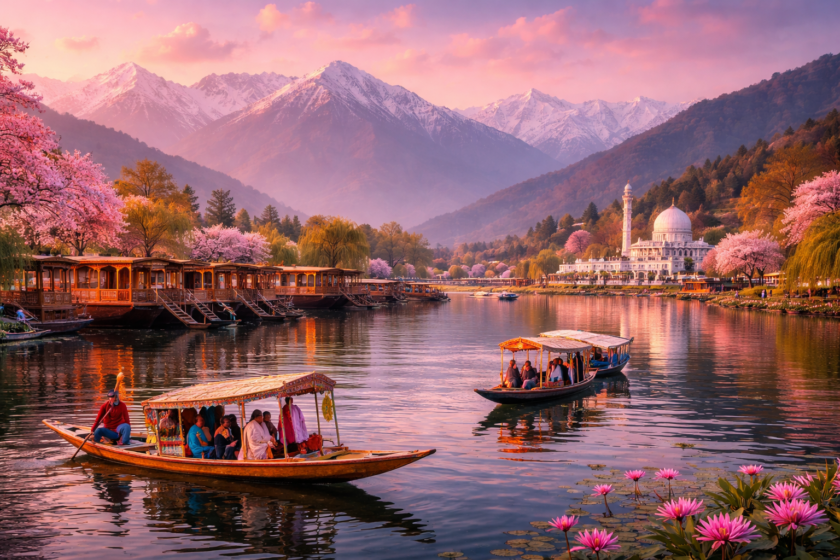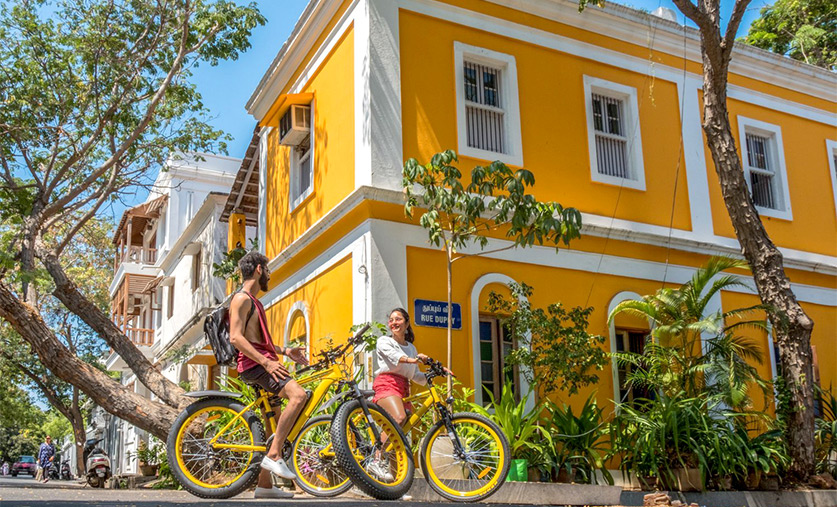Lucknow: Medical tourism in Lucknow, the capital of Uttar Pradesh, is emerging as a significant contributor to India’s booming economy, driven by affordable healthcare, skilled professionals, and the city’s cultural appeal. While specific data on Lucknow’s medical tourism landscape is limited, the broader context of India’s medical tourism growth, combined with Lucknow’s healthcare infrastructure and historical allure, provides insight into its evolving role. A look at the changing landscape with a focus on Lucknow. Lucknow is increasingly recognized as a medical tourism destination due to its advanced healthcare facilities, cost-effective treatments, and proximity to cultural and historical landmarks like the Bara Imambara, Chhota Imambara, and Rumi Darwaza. The city’s hospitals offer specialized treatments in cardiology, orthopedics, oncology, and organ transplants, attracting patients from neighboring countries (e.g., Bangladesh, Nepal) and regions like the Middle East and Africa. The affordability of procedures, often 60-90% cheaper than in Western countries, combined with minimal waiting times, makes Lucknow appealing. Additionally, the city’s rich Nawabi heritage and culinary offerings enhance the experience for medical tourists seeking a blend of treatment and tourism.
Key Hospitals and Facilities in Lucknow
Sanjay Gandhi Postgraduate Institute of Medical Sciences (SGPGIMS)
Details: A premier government-run medical institute offering advanced treatments in cardiology, neurology, nephrology, and organ transplants. It is known for high-quality care and experienced specialists, attracting both domestic and international patients.
Significance: SGPGIMS is a major hub for complex surgeries, making it a cornerstone of Lucknow’s medical tourism appeal.
King George’s Medical University (KGMU)
Details: One of India’s oldest and most prestigious medical institutions, KGMU specializes in a wide range of treatments, including oncology, orthopedics, and dental care. It serves patients from across India and neighboring countries.
Significance: Its reputation for skilled doctors and affordable care draws medical tourists, particularly from South Asia.
Medanta Hospital, Lucknow
Details: A private, multi-specialty hospital offering cutting-edge treatments in cardiology, oncology, orthopedics, and robotic surgeries. It is equipped with modern facilities and caters to international patients with personalized care packages.
Significance: Medanta’s focus on luxury healthcare aligns with the global trend of “luxury medical tourism,” combining high-quality treatment with comfort and privacy.
Apollomedics Super Speciality Hospital
Details: A private hospital providing advanced care in heart surgery, neurosurgery, and cosmetic procedures. It emphasizes patient-centric services, including visa assistance and accommodation for international patients.
Significance: Its comprehensive services cater to medical tourists seeking both treatment and a seamless travel experience.
Charak Hospital and Research Centre
Details: A growing private hospital offering affordable treatments in general surgery, orthopedics, and gynecology. It is gaining traction among budget-conscious medical tourists.
Significance: Represents the rise of mid-tier hospitals in Lucknow contributing to medical tourism.
Factors Driving the Changing Landscape
Cost-Effectiveness: Medical procedures in Lucknow cost 60-80% less than in Western countries, even including travel and accommodation. For example, a cardiac bypass surgery costing $100,000 in the U.S. may cost $10,000-$15,000 in Lucknow.
Government Support: Initiatives like the e-Medical Visa and Ayushman Bharat Digital Mission facilitate international patient access. Uttar Pradesh’s tourism policy also promotes medical tourism alongside cultural tourism.
Skilled Workforce: Lucknow’s hospitals boast highly trained doctors, many with international qualifications, ensuring quality care.
Cultural and Touristic Appeal: Lucknow’s historical sites, such as the Bhul Bhulaiya and Gomti Riverfront, and its culinary delights (e.g., kebabs, biryanis) attract medical tourists seeking a holistic experience.
Technological Advancements: The adoption of AI, robotic surgeries, and telemedicine in Lucknow’s hospitals enhances treatment outcomes and accessibility.
Challenges
Quality Disparities: While top hospitals meet international standards, smaller clinics may lack consistency, posing risks for medical tourists.
Post-Treatment Follow-Up: Remote follow-up care can be challenging for international patients.
Intermediary Issues: Some facilitators may overcharge or mislead patients, necessitating thorough research.

Infrastructure Gaps: While Lucknow’s healthcare sector is advanced, urban infrastructure (e.g., transport, accommodation) may not always match global expectations.
On India’s Appeal:
“The practice of travelling to India from another country to receive dental care has been on the rise in India for several reasons, like cost-effectiveness being affordable compared to many western countries with highly qualified surgeons and hospitals equipped with modern facilities and technologies.” – Dr. Kamlesh Kothari, Dental Implant Specialist, Kolkata
Relevance to Lucknow: This applies to Lucknow, where hospitals like KGMU and Medanta offer similar cost-effective, high-quality care.
On Personalized Care:
“Our medical facilities are undoubtedly the best but we also add the personal touch which the western world lacks.” – Anonymous Indian healthcare provider, quoted in Hindustan Times
Relevance to Lucknow: Lucknow’s hospitals emphasize patient-centric care, aligning with this sentiment.
On Luxury Medical Tourism:
“Luxury medical tourism revolves around a shift in our perception of healthcare… Nowadays a new type of traveler is emerging. One who seeks not only the best quality care but also longevity measurements and an immersive, trusted experience throughout their journey.” – Valtech
Relevance to Lucknow: Facilities like Medanta cater to this trend, offering premium services alongside cultural experiences.
On Economic Impact:
“The cost of medical treatment in India is already considered to be about the lowest of any medical destination, the current decline in the rupee may bring even more medical tourists to India’s top hospitals.” – DS Rawat, ASSOCHAM
Relevance to Lucknow: Currency advantages boost Lucknow’s appeal for patients from the Middle East and Africa.
On Global Trends:
“Medical travel dates back as far as ancient Greece, but over the years the landscape for medical travel has changed considerably due to a variety of reasons… changes are driven by economic growth and… technology.” – Dr. Nizar Zein, Cleveland Clinic
Relevance to Lucknow: Economic and technological factors are positioning Lucknow as a competitive destination.
Notable Trends and Future Outlook
Integration with Wellness Tourism: Lucknow is promoting Ayurveda, yoga, and holistic therapies alongside modern medicine, appealing to wellness-focused medical tourists.
Digital Health Platforms: Telemedicine and AI-driven diagnostics are enhancing pre- and post-treatment care, making Lucknow accessible remotely.
Economic Growth: India’s medical tourism market is projected to reach USD 14.31 billion by 2029, with Lucknow contributing as a key northern hub.
Sustainability: Hospitals are adopting eco-friendly practices, aligning with global trends in sustainable healthcare.
Specific to Lucknow
While the search results lack detailed accounts of medical tourism specifically in Lucknow, the city’s inclusion in Uttar Pradesh’s tourism push (e.g., 23.7 crore tourists in 2017, including medical tourists) suggests growing prominence. Hospitals like SGPGIMS and Medanta are likely at the forefront, though exact patient inflow data is unavailable. The city’s cultural heritage, as highlighted by sites like lucknowtourism.co.in and incredibleindia.gov.in, complements medical tourism by offering a unique recovery environment.
Lucknow’s medical tourism landscape is evolving, driven by affordable, high-quality healthcare and the city’s cultural richness. Leading institutions like SGPGIMS, KGMU, Medanta, and Apollomedics are positioning Lucknow as a northern hub for medical tourists, particularly from South Asia and the Middle East. Challenges like quality disparities and infrastructure gaps persist, but government support and technological advancements are fostering growth. For a deeper understanding, stakeholders should conduct primary research into patient inflows and hospital-specific offerings in Lucknow.









